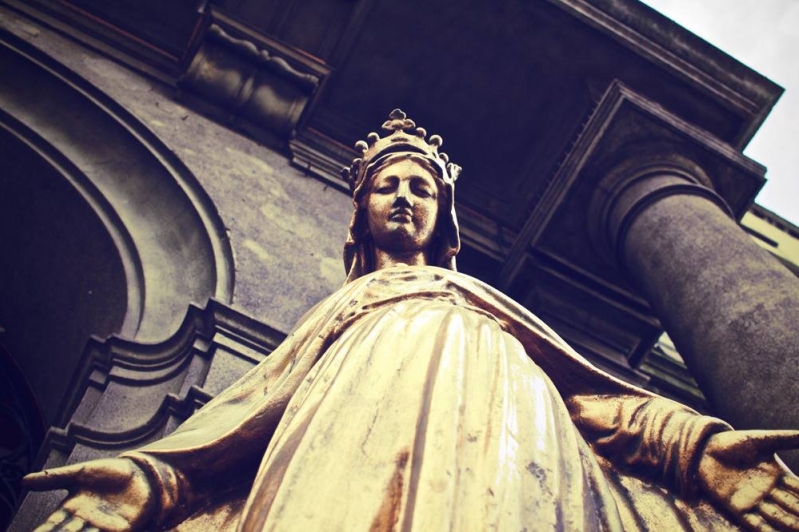
Americans said they augmented their charitable donations in 2015, according to a new survey conducted by Florida-based Saint Leo University Polling Institute. And Pope Francis' September visit to the United States may have influenced their generosity, surmises the pollster team. More than 1,000 people were surveyed online from Nov. 29 through Dec. 3, 2015. Answers were sorted by specific religious groups.
Data suggests 61 percent of respondents will give more or the same in 2015 compared to 2014, while 14.1 percent do not donate to charities and 15.9 percent plan to give less. The poll has a plus or minus 3 percent margin of error.
Catholics specifically stood out, because 24.3 percent of those surveyed said they would donate more to charity. In fact, 14.9 percent said they were motivated to give the same or more by Pope Francis.
The pope's popularity remained high, as 70 percent of those polled said they had a very or somewhat favorable opinion of the pope. In a September Saint Leo poll, favorable opinion of Pope Francis was 75.8 percent.
Clearly, the pope had the most influence on Catholics," said Dr. Marc Pugliese, Saint Leo University assistant professor of religion and theology in Virginia.
Americans overall, and Catholics specifically, mirror each other in their giving patterns, as both groups plan to give to charities in general (14.9 percent overall, 23.3 percent Catholics), human rights groups (13.1 percent overall, 22.3 percent Catholics), environmental groups (13 percent overall, 21.4 percent Catholics), own place of worship (12.8 percent overall, 19.4 percent Catholics), "Right to Life" organizations (12.2 percent overall, 17.5 percent Catholics) and refugee/immigrant causes (9.9 percent overall, 15 percent Catholics).
"People feel compelled to do something," said Dr. Nancy Wood, Saint Leo University associate chair of human services, "whether that is donating money or donating time and volunteering."
"Giving back to the community unites Americans. It's helping my neighborhood out, getting back to the traditional 'it takes a village' mindset," she said.
The pope's message is resonating with non-Catholics as well.
In Florida, the Saint Leo poll showed 63.2 percent of 531 respondents said they would give the same or more to charity in 2015. An improved economy in the state is helping some to give, said Dr. Susan Kinsella, department chair of human services at Saint Leo University.
Saint Leo University is a regionally accredited, liberal-arts-based institution that was chartered in 1889 by Catholic Benedictine monks in rural Pasco County, Fla., making it the first Catholic college in the state. Saint Leo provides access to education to people of all faiths, emphasizing the Benedictine philosophy of balanced growth of mind, body, and spirit.







